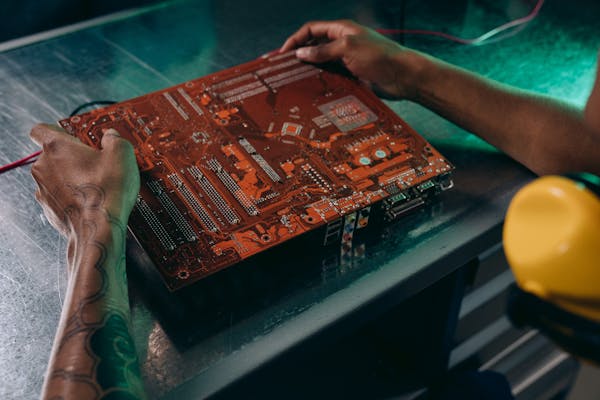Malaysia has established itself as a key player in the global electronics manufacturing industry. With its strategic location, skilled workforce, and government-backed incentives, the country continues to attract international investments in the electronics sector. From semiconductor production to consumer electronics and industrial components, an electronic manufacturer Malaysia plays a crucial role in supporting industries worldwide.
This guide explores the growth of Malaysia’s electronics manufacturing industry, its key players, and the future trends shaping the sector.
The Role of Electronic Manufacturers in Malaysia
An electronic manufacturer Malaysia is responsible for designing, assembling, and producing electronic components and finished products for various industries. These manufacturers cater to sectors such as:
- Semiconductors – Malaysia is one of the world’s largest semiconductor exporters, supplying chips used in computers, smartphones, and vehicles.
- Consumer Electronics – Many global brands rely on Malaysian manufacturers for products such as home appliances, televisions, and mobile devices.
- Automotive Electronics – The rise of electric vehicles (EVs) has increased demand for Malaysian-made automotive electronics, including battery management systems and sensors.
- Industrial Electronics – Malaysia produces high-quality printed circuit boards (PCBs) and automation components for factories worldwide.
One notable player in the industry is FOZ One, a leading electronic manufacturer Malaysia, specializing in high-precision electronic components and custom manufacturing solutions.

Key Factors Driving Malaysia’s Electronics Industry
Several factors contribute to Malaysia’s success as an electronics manufacturing hub:
1. Government Support and Incentives
The Malaysian government actively supports the electronics industry through incentives such as tax exemptions, grants, and industrial development programs. Organizations like the Malaysia Investment Development Authority (MIDA) and Malaysian Industrial Development Finance (MIDF) provide funding and support to encourage local and foreign investments.
2. Skilled Workforce
Malaysia has a well-trained workforce specializing in engineering, electronics design, and assembly. The country’s universities and technical institutions continuously produce talent to meet the demands of the industry.
3. Advanced Manufacturing Facilities
An electronic manufacturer Malaysia benefits from modern industrial parks and free trade zones, equipped with cutting-edge technology, automated production lines, and research and development (R&D) centers.
4. Strong Global Trade Links
Malaysia’s free trade agreements (FTAs) with key markets such as the United States, China, and the European Union provide local manufacturers with easy access to international markets.
The Future of Electronic Manufacturing in Malaysia
The electronics industry in Malaysia is evolving rapidly, with several emerging trends shaping its future:
1. Growth of the Semiconductor Industry
With the global semiconductor shortage, Malaysia is increasing its capacity to meet demand. Companies like FOZ One are expanding their production capabilities to supply semiconductor components to global markets.
2. Smart Manufacturing and Industry 4.0
Automation, robotics, and artificial intelligence (AI) are transforming the way electronics are manufactured. Malaysian factories are adopting smart manufacturing technologies to enhance efficiency and reduce production costs.
3. Sustainability and Green Electronics
The demand for eco-friendly and energy-efficient electronic products is growing. Many Malaysian manufacturers are focusing on sustainable practices, such as reducing electronic waste and using renewable energy in production.
4. Expansion into Electric Vehicles (EVs) and IoT Devices
As the EV market grows, Malaysia is positioning itself as a key supplier of electronic components for electric cars. Additionally, the rise of Internet of Things (IoT) devices is driving demand for locally produced smart sensors and connectivity modules.
Conclusion
Malaysia remains a global leader in electronics manufacturing, driven by government support, skilled talent, and strong trade partnerships. With advancements in semiconductors, smart manufacturing, and sustainable practices, the future of the electronic manufacturer Malaysia sector looks promising.
Companies like FOZ One continue to play a crucial role in shaping the industry by offering high-quality, innovative electronic manufacturing solutions. As the demand for advanced technology increases, Malaysia is well-positioned to remain a key player in the global electronics market.


